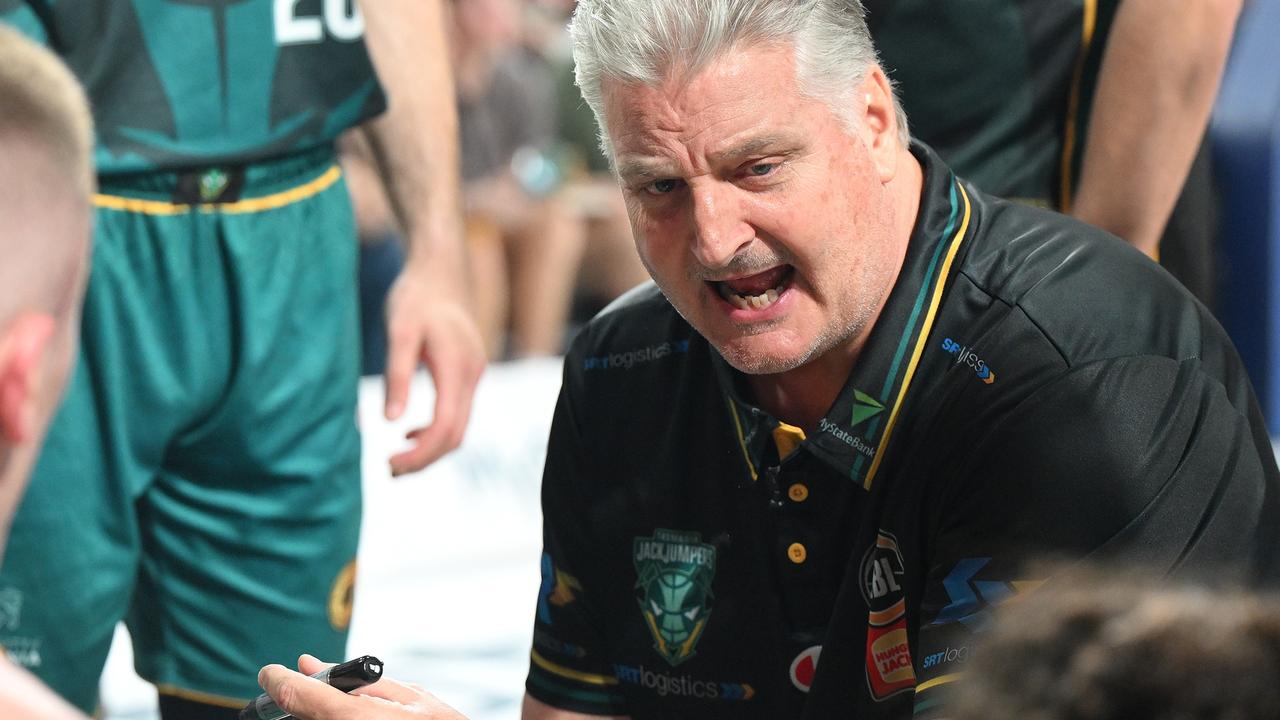Brittney Griner’s grim penal colony fate: ‘You’re starved just by the food’
WNBA star Brittney Griner will endure merciless conditions inside a Russian penal colony where rancid food, extreme isolation and tyrannical wardens await.

Basketball
Don't miss out on the headlines from Basketball. Followed categories will be added to My News.
WNBA star Brittney Griner will endure merciless conditions inside a Russian penal colony — where rancid food, extreme isolation and tyrannical wardens await her, former Russian prison inmates, their relatives and penitentiary experts claim.
Former US Marine Trevor Rowdy Reed, who spent nearly 1,000 days detained in Russia, was freed in April in exchange for Konstantin Yaroshenko, a Russian pilot serving a 20-year prison sentence for conspiring to smuggle more than $150 million of cocaine into New York, the New York Post reports.
Reed was accused of assaulting two Moscow police officers in August 2019 and spent 11 months in a pre-trial detention centre in Moscow until a Russian court meted out a nine-year sentence in 2020.
He was later shipped 550km away to a penal colony in the remote Russian republic of Mordovia, where he survived nine agonising months until he was swapped this year.
“You gotta understand, the labour camps in Mordovia, these are pre-Stalin-era prisons, these were literally referred to as gulags,” Trevor’s father, Joey Reed, told The Post. “And even though there’s a federal authority for prisons, each warden has wide leeway to do whatever they want until it makes someone angry or leads to bad press.”
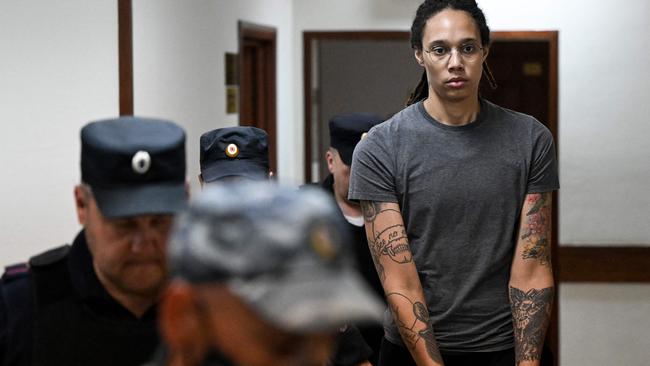
Reed, 62, said his son often described a dour, medieval atmosphere inside the penal colony where Trevor, now 31, lived in crude barracks built of brick and sheet metal.
He routinely curled up near hot water pipes or piled on extra clothes during frigid nights in the desolate Mordovian plains, where January temps average in the low teens. When guards threatened to forcibly disrobe his son, Trevor threatened them back, his father said.
“They said they would take them off him and he said, ‘I will take you out trying,’” said Reed, of Granbury, Texas. “But the guards never beat or abused him because they knew he was on the trading block.”
The defiant Marine vet wasn’t beaten by jailers for those bold stands, but he did lose about 50 pounds from his unimposing frame due to the “horrible” food, his father said. The sparse grub consisted primarily of potato soup or some kind of fish, which was typically filled with “crunchy bones” — so foul that even the barracks’ stray cats didn’t eat it, Reed said.
“That’s how bad it is,” he said. “There was no real health value to the food.”
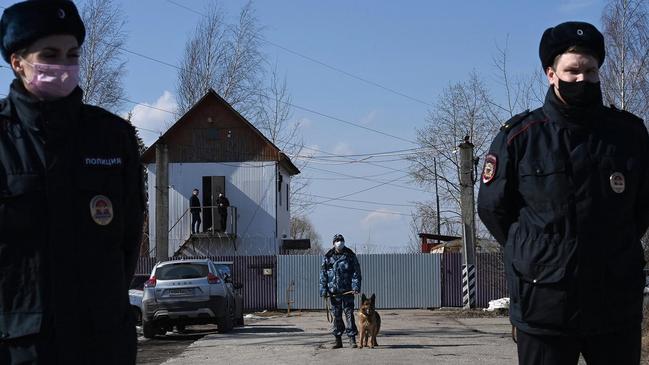
Trevor Reed, who refused to work inside the penal colony, was tossed into solitary confinement for long stretches up to 28 days, his father said.
“They were trying to break my son,” Reed said. “The main reason he resisted was because he was angry.”
The desperate veteran went on two hunger strikes to protest being barred from contacting his relatives thousands of kilometres away and not receiving proper medical care, his father said.
“He would only drink water, but could only last about four or five days each time because he was already so malnourished,” Reed said. “He figured if he died of starvation, it would be an international incident.”
Now Trevor, who declined to be interviewed, has been back in the US for about eight months, recuperating from his nightmarish stint in Russia. Reed said his son is “doing well.”
“He’s going to return to college,” Joey said. “He’s got a lot of options on the table.” And despite the ordeal, “Trevor speaks fluent Russian now,” his father added, which he first learned from a Russian woman he dated before being arrested — and perfected behind those prison walls.
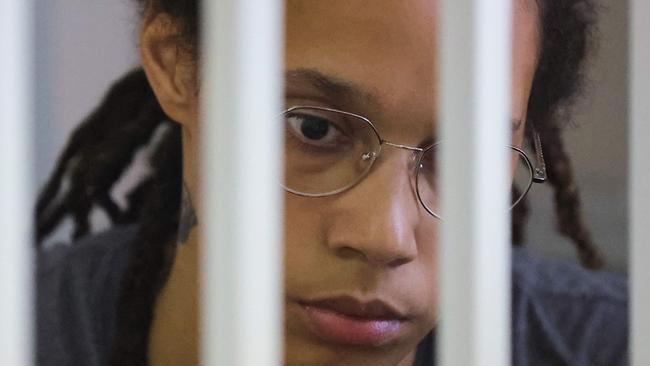
Other inmates in Russian prisons or penal colonies, meanwhile, have not been as fortunate. Many, for instance, are subjected to systemic torture, which can sometimes culminate in death or suicide. The facilities are rife with human rights violations that are often “life-threatening,” according to a State Department report.
“Overcrowding, abuse by guards and inmates, limited access to health care, food shortages, and inadequate sanitation were common in prisons, penal colonies, and other detention facilities,” the 2021 assessment found.
Even more dire, some penal colony inmates are limited to just six phone calls per year, according to Daniel Balson, Amnesty International USA’s advocacy director for Europe and Central Asia.
“Within Europe, the Russian prison system has been subjected to the highest number of complaints to human rights monitors,” Balson told The Post. “It really stands apart among cruel, inhumane and degrading practices.”
Inmates like Griner, who will serve a nine-year sentence for drug smuggling and possession following her failed appeal, are habitually sent to extremely secluded regions via van or train on journeys lasting as long as weeks. The clueless captives are generally denied access to basic necessities like food, water or bedding during the terrifying trips, Balson said.
“They don’t know where they are and they don’t know where they’re going — and often aren’t told until their arrival,” Balson said. “Prisoners are being functionally disappeared for days or weeks in the prison system.”
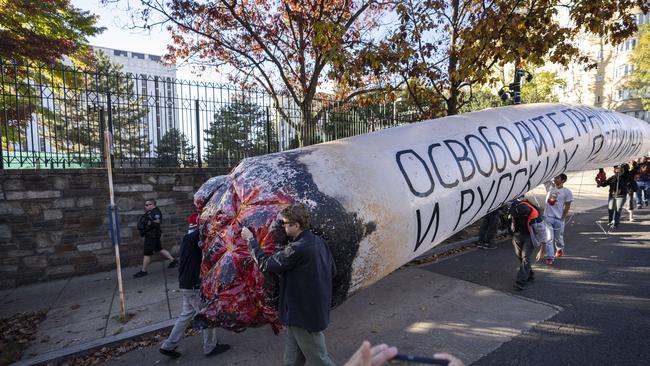
Without White House intervention or a reduced sentence, Griner, 32, will finish her penal colony stretch in summer 2031 — a few months shy of her 41st birthday. But the psychological torment of the two-time Olympian’s draconian detention may continue years or even decades later, one former American prisoner said.
“It took me a long time to adjust to normal society,” Marvin Makinen, 83, of Chicago, told The Post. “It still affects me.”
Makinen, then 21, was arrested in the Soviet Union on espionage charges in July 1961. He was later sentenced to eight years by a closed military tribunal. He spent two years in maximum-security Vladimir Prison — Russia’s largest, which was established by Empress Catherine II in 1783 — which included spans in solitary confinement, before being transferred to a labour camp in what’s now Mordovia.
“It becomes very depressing, there’s a lot of mental anguish,” Makinen said. “It’s important for your mental health to have some kind of activity to keep your mind active, otherwise you’re just sitting around stewing.”
Makinen spent four months at the labour camp, where he worked as a mason. During his 28 months in captivity, he lost nearly 55 pounds from his slim build. He was ultimately freed in 1963 along with Polish American Jesuit priest Walter Ciszek in exchange for two Soviet spies.
Makinen said US Embassy officials should push to visit Griner as frequently as possible so jailers won’t allow her condition to deteriorate.
“And I hope that they allow her communication, written communication with her family to keep up her mental health,” said Makinen, now a professor of biochemistry and molecular biology at the University of Chicago. “I was limited to one letter a month.”
This story appeared in the NY Post and has been reproduced with permission.
Originally published as Brittney Griner’s grim penal colony fate: ‘You’re starved just by the food’

